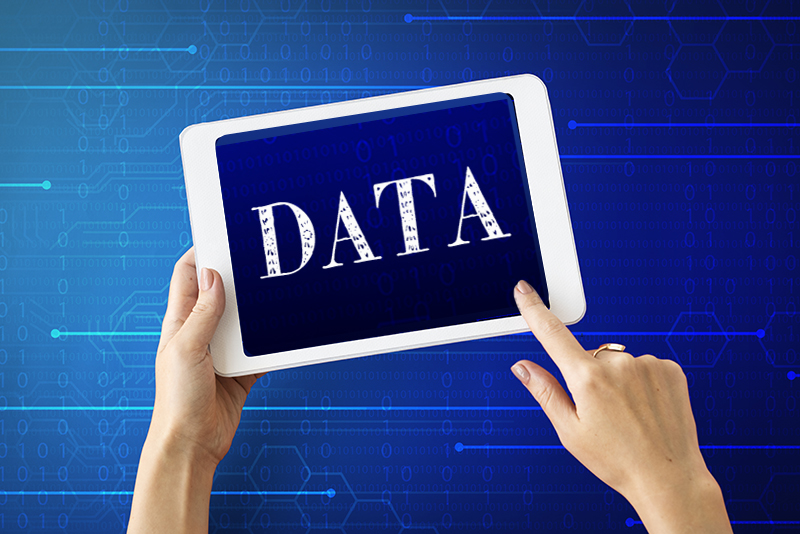Companies capture data to gain insights about their internal and external operations and make better decisions. Outsourcing solutions like data entry and data conversion allow business to manage and process this information efficiently. Capturing data about customers is necessary to understand customer behavior and meet their changing needs.
Benefits of Collecting Customer Data
The information that companies collect from their customers typically includes personal data (contact details, personal residential information, government issued ID, etc), engagement data (interactions on social media, paid ads, e-mails, mobile apps, business website, and customer service), behavioral data (buying habits, product/service preferences), and financial (financial information and credit history).
Today, customers interact with companies in various ways. Whether it’s visiting your website, retail store, through social media or talking to a customer service representative, they leave behind valuable information that you can leverage to improve your services.
The benefits of collecting customer data are:
- Obtain information to optimize marketing, promotional and business campaigns
- Predict what your target audience or customer demographic wants to buy and meet their demands more easily and quickly
- Better understand customer behaviour, interests and expectations and deliver personalized interactions and an on-demand experience
- Highlight customers’ pain points
- Understand which products are popular and which are not, which allows identification of areas that need improvement
- Develop new ideas and establish new business opportunities
- Increase customer satisfaction and loyalty, while meeting business goals
Once you collect the data, you need to manage it effectively and use it to gain customer insights.
Top Customer Data Capture Methods
There are many methods to collect customer data and it’s important to follow best practices when using them.
- Surveys: Online surveys and polls are a quick and cost-effective way to collect customer data from multiple respondents. For a successful customer feedback survey campaign, you need to ask the right questions and choose the metrics that matter the most. Aim to understand customer preferences to shape your products and optimize the buying experience.
- Interviews: Customer interviews are useful tools to know how customers interact with a product/service. Interviews can help you understand their pain points and find out what they really need.
- Focus groups: Focus groups are a popular qualitative market research tool to collect information about customer experience, sentiment and opinion, especially in-depth insights. A focus group usually involves 6-10 people and a trained moderator. Respondents are asked predetermined questions to gauge their opinion about a particular product, topic, or area of interest.
- Web tracking: This technique involves monitoring people’s movements, interests and behaviour online through their devices. Cookies and other web tracking tools are used to collect information such as users’ gender, age, location, and search and browser history as well as how visitors interact with a website. Digital tracking provides data on customer purchases on ecommerce sites, the sites and products they browse, and their interests and views as revealed by their online profiles. By monitoring their movements, interests and behavior, you can gain insight into the performance of your website and your ad campaigns’ reach.
- Social listening: Social listening is a customer intelligence tool that allows you to gain insights about what people are saying about a company, individual, product or brand on social media. It allows you to collect information that people share on social media. Information about their interests, hobbies or followers can help you understand your target audience. Customers can be asked to make suggestions on new product features and vote on their favourite brands. Social media monitoring tools along with specific keywords can be used to mine content on social networking websites, blogs and in discussion forums.
- Lead generation forms: Lead generation forms are forms used to collect email addresses and other information from website visitors. They can include contact forms, registration forms, or newsletter subscription forms. When a visitor fills in a form on a website, they are showing interest in the business. You company has to work to turn the lead into a customer.
- Marketing analytics: Popular marketing analytic tools like Google Analytics, Kiss Metrics, SEMRush, Oribi and MixPanel track site visitors’ online activity. They provide information about profiles of people that clicked on your ad, the number of times they clicked on it, on which device, at what time, etc. This method will help you understand if your business is focusing on the right areas to increase ROI.
- Point-of-sales (POS) data: POS data is the load of information that is automatically generated during customer checkout. This includes information such as inventory, sales, product transaction, customer, and staff. Analyzing this information can help you make data-driven decisions to grow your business
Other methods to collect customer data include loyalty programs, customer data platforms (CDP), and monitoring in-store traffic. Successful companies monitor customer data real-time and analyze it using advanced techniques. Using data to inform every customer service decision can help you provide faster, seamless customer service and improve the entire customer experience. Make sure you collect only the information you need as too much data can be overwhelming. Importantly, always utilize safe, ethical and data collection techniques, and handle and protect customer information correctly.
Data analytics requires clean data to produce accurate insights. Outsource data entry and cleansing to ensure that your data is correct, complete and accurate. With quality data, you can analyze individual customer interactions, identify pain points, and make improvements in real time. With the right outsourcing service provider, you can focus on you customer research and analytics without worrying about the veracity of the information.
|
Read more: How Data Entry Services Help In Data Preprocessing In Machine Learning Data Cleansing Essential to Maintain Accurate Customer Data |




